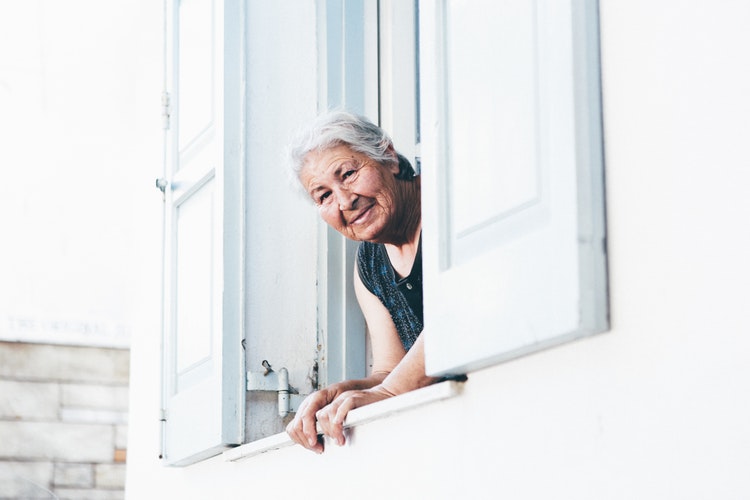Strength and the Menopause: Why It’s Vital to Maintain Muscle as We Age
Jul 27, 2018
It’s extremely important that you take steps to maintain your muscle mass and strength before, during and after the menopause.
Why?
Because after the age of 35, we lose an average of 5% of our muscle mass every ten years in an age-related process known as sarcopenia, and it’s one of the primary side-effects of ageing. Although the process is the same for men, us women have it worse post-menopause.
I’m aware that this might not be news for you, because most of us are pretty clued-up about what happens when we get older, aren’t we? So much so that you might think you don’t need to worry about it at all just yet.
But actually, it’s this process that will have a massive impact upon your health now and well into the future.
If you want to stay youthful, healthy, energetic, confident and independent into your golden years, you NEED to think about maintaining your muscle mass, starting right now.
Why are strength and muscle mass so important when it comes to ageing?
Whilst we usually associate strength and muscle mass with bodybuilders, athletes and fitness fanatics, we all need to have strong healthy muscles to function as human beings.
Most of us take this for granted. We believe that we’ll always be able to do those mundane tasks such as loading the washing machine, walking the dog, walking downstairs, pegging out the washing, making a cuppa, and so on.
But that’s by no means certain. It’s a case of use it or lose it, I’m afraid.
Unless you take steps to maintain your muscle mass, ten or twenty years you might find yourself struggling to look after yourself and stay independent.
It’s scary, and it’s a real possibility.
Let your muscle mass decline and you’ll be more likely to groan as you get out of your chair. You’ll find it harder to make it up those flights of stairs. You’ll suffer from an increasing number of balance problems. You’ll be more likely to suffer from falls and fractures and you’ll find it harder to recover from injuries or illness too.

Because of your physical limitations, you’ll be much more reliant on other people to help you function and you’re more likely to find yourself socially isolated or even depressed.
Of course, this will affect your confidence and your happiness and you’ll feel much older than you need to.
When I visit my mother (now the ripe old age of 95) this is something I really notice. I see how she’s lost her confidence to do even the most basic of things. It’s really sad when I look back to the vibrant and energetic woman that she used to be.
I’ve also seen how important muscle mass is in my own life. Over the five years since I’ve been ill, I’ve lost a lot of muscle and I’ve noticed big changes in the way I look and also in my balance, strength, and proprioception (awareness of my body position in my environment).
This has been really eye-opening and frightening, and I’ve had an early insight of what it feels like to be old. That’s why I’m extra passionate about maintaining this muscle mass and staying younger for longer.
What are the other benefits of maintaining your muscle mass?
Staying fit, strong and working to maintain your muscle mass during the menopause will also bring a whole host of other health benefits, including:
- Protection against heart disease. Exercise lowers blood pressure, increases ‘good’ cholesterol and reduces ‘bad’ cholesterol.
- A decrease in wrinkles and healthier-looking skin. Exercise boosts your circulation which reduces signs of ageing in your skin .
- A reduced risk of dementia and Alzheimer’s disease. Increased blood flow helps keep your brain nourished so you’re less likely to suffer from age-related cognitive issues.
- The ability to maintain a healthy weight. When you stay active, you’ll boost your metabolism, help balance your hormones and keep that weight off.
- Better bone health and reduced risk of osteoporosis. Weight-bearing exercise will help maintain healthy bone cell turnover and reduce your risk of fractures.
- Reduced risk of diabetes. Exercise helps balance your blood sugar levels, reducing your risk of diabetes and other metabolic problems.
- Improved pelvic floor health. Boost your sex life and avoid those embarrassing ‘leaks’ by strengthening your pelvic floor.
- Reduced risk of depression and anxiety. Get that blood flowing and you’ll increase endorphin release and lift your mood.
- Better breathing and lung health. Getting out of breath helps to keep your cardiovascular system healthy.
- Healthier breast tissue. Exercise doesn’t just help your breasts look better, it also helps prevent against breast cancer too.
- Increased overall strength. You won’t have to ask your kids or grandchildren for help with the shopping as often.
- Reduced joint pain. Stronger muscles will support your joints and could reduce symptoms of arthritis and other joint issues.
- A greater sense of independence. You’ll be able to do things for yourself. What could be better?
- Greater confidence and happiness.Obviously, you’ll feel much more confident and content when you feel strong enough to do things for yourself.
- A slower ageing process. When you stay strong, healthy and fit at the menopause, you won’t feel quite as old as you otherwise might.
Clearly, it’s well worth taking care of yourself so you can stay looking and feeling great, both inside and out.

Self Assessment: How strong are you right now?
It’s always a good idea to take a few moments to consider where you are right now when it comes to your strength and fitness. This will help you take action to boost your strength, increase flexibility and maintain your muscle mass in way that gets you best results.
But don’t feel embarrassed if you’re not in the best of shape right now. No one is judging you (and you shouldn’t judge yourself either). Simply notice where you are, and you’ll be better prepared to do something about it.
Key questions you can ask yourself include:
- How confident am I when walking downstairs? Do I have to look down or hold the bannister?
- Can I balance on one leg without wobbling?
- Have I been running to the bathroom lately?
- Can I sit up straight?
- Can I touch my toes?
- Can I lift my shopping from the car myself?
- Do I ‘leak’ when I cough, laugh or sneeze?
- Can I walk ½ mile without feeling too tired?
Watch this short (3.55m) video to see what the BBC have to say about this:
As they say in the video, don’t panic if you’d struggle to do any of these activities.
It’s never too late to improve your strength, balance and proprioception and you won’t need to spend hours every day trying to get in shape either.
Perform regular bouts of resistance training exercises for no more than 30 minutes and repeat 2-3 times per week and you’ll notice a massive difference with your confidence, health and happiness both now and well into the future.
How to get started with resistance training at the menopause
Using the simple exercises I’m about to share, it’s a good idea to devise your own workout plan where you target your big muscle groups in each session. This will give you a good overall workout and improve those key areas that most need TLC.
Be sure to include your bottom, your legs, your chest, your arms, your back and your tummy muscles for best results.
Aim to complete between 30 seconds and one minute of each exercise, but don’t panic if you’re too tired or unfit and can’t do that much.
Do whatever you can, even if that’s just two of each exercise and be proud of yourself for taking action to stay strong and maintain your muscle mass. Then as you get stronger and fitter, you can increase the repetitions.
Great strength exercises include:
- Squats
- Step ups
- Push ups
- Lunges
- Front plank
- Jumping/Star Jumps/Rebounding (avoid if you have osteoporosis or pelvic floor dysfunction)
- Boxing
- Side plank
- Push ups with a twist
- Pull ups
For best results, team up with a friend or partner to help keep your motivated and schedule your quick workout on your calendar.
So, to round up what I’ve been sharing here, remember that it’s vital to keep exercising as much as possible to maintain your muscle mass and keep the worst signs of ageing at bay. This will help you look and feel younger, maintain your independence for longer, and also reduce your risk of falls, fractures, arthritis and other age-related health problems.
Even if exercise is your least favourite thing in the world, make sure you make time to work on your strength, balance and proprioception by doing adequate weight-bearing exercises (swimming won’t be enough).
It doesn’t take long and the benefits to your long-term health make it well worth the effort.
Aren’t you worth it?





